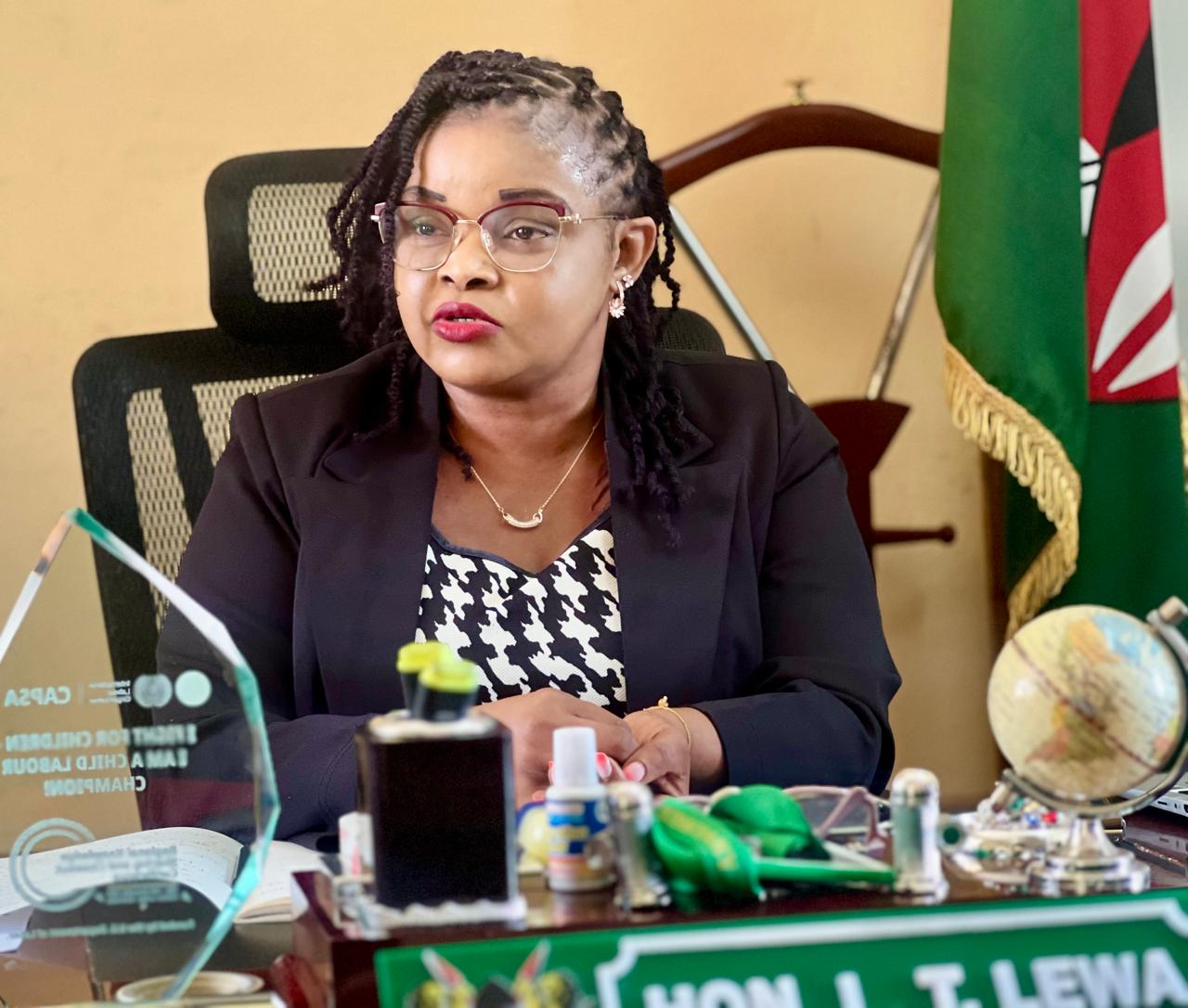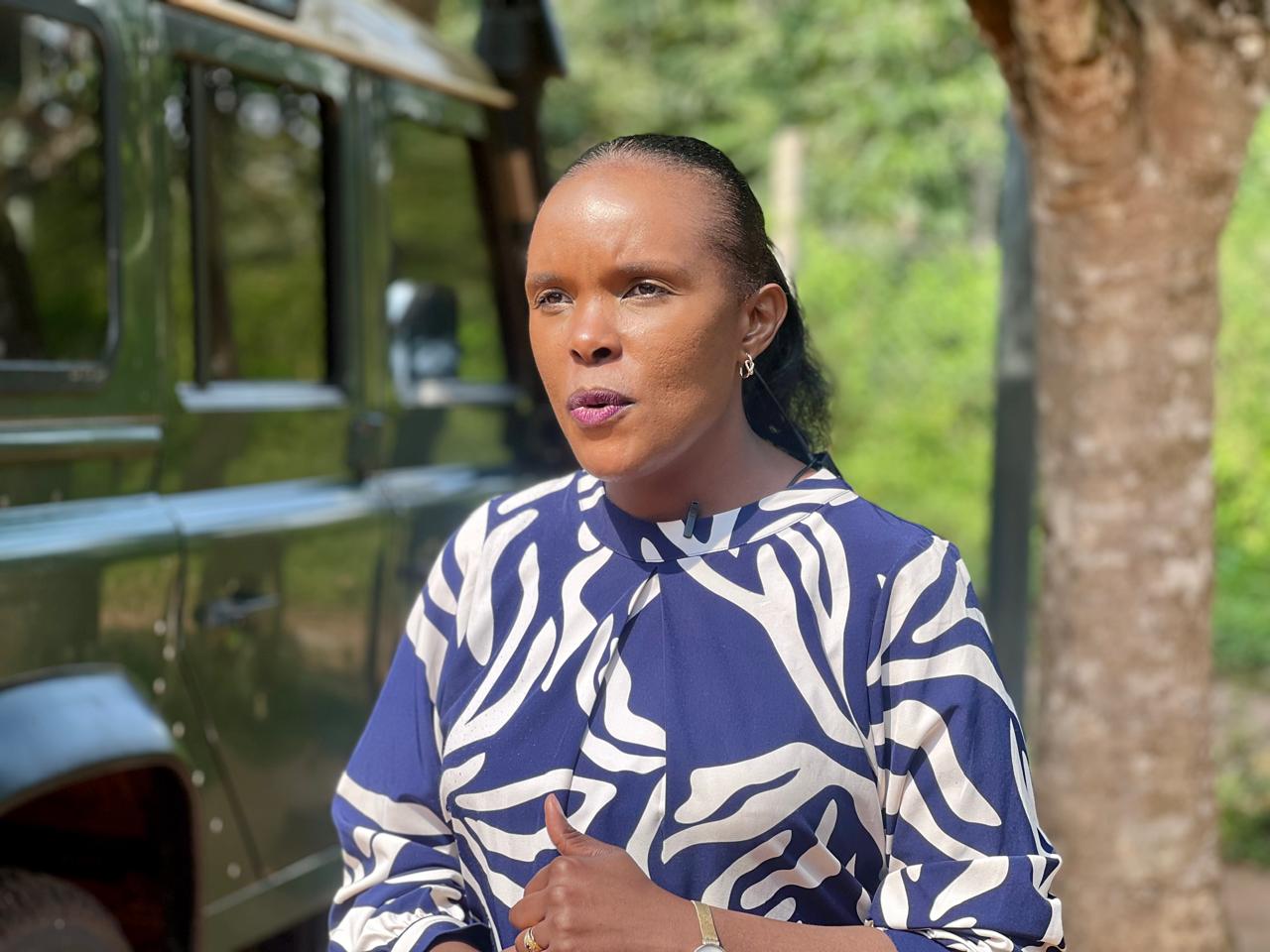

In a concerted effort to tackle rising cases of sexual and gender-based violence (SGBV), the Kwale Law Courts' Court Users Committee (CUC) introduced a groundbreaking Standard Operating Procedure (SOP).
This multi-sectoral approach aims to streamline the justice process and ensure accountability from the moment a case is reported to its final adjudication.
Principal Magistrate Lilian Tsuma Lewa, who chairs the Magistrate's Court CUC and heads the station, highlighted the committee's role as a platform for collaboration among justice sector stakeholders.
The CUC, she explained, includes representatives from the National Police Service (NPS), the Office of the Director of Public Prosecutions (ODPP), the Directorate of Children Services (DCS), probation and aftercare services, and civil society organisations (CSOs) like Haki Yetu, International Justice Mission, and Equality Now.
"The entire justice sector is represented at NCAJ. So, in replication, when you come to the ground, the membership that is at the NCAJ is what is replicated at the CUC,” she said.
"We have so many SGBV cases, so as a CUC, that was an issue of concern that was brought on board, and we said, how can we handle it, and how can we address this issue, because now it was skyrocketing."
The initiative was born out of a pressing need to address a worrying trend of SGBV cases stalling.
Justice Lewa noted that the CUC identified this as a major challenge, leading them to develop a localised solution.
The resulting SOP is a "homegrown" solution designed to ensure uniformity and efficiency.
It outlines specific roles for each stakeholder, from police investigations to court trials.
"We needed to come up with a document that addresses how these cases of SGBV are going to be handled, because most people were concerned that these cases are reported, they are investigated, but somewhere along the line, when they come to court, either there are no convictions," she said.
According to Magistrate Lewa, the Kwale Law Courts registered 79 SGBV cases in 2023, which dropped to 73 in 2024.
"That difference of five, it may be very small, but if you look at the impact that is on the ground for even that number to drop, it means we are doing the right thing," she said.
This comprehensive approach ensures that survivors are supported and that the system is equipped to deliver justice.
The CUC's work is crucial in a county where poverty and retrogressive cultural practices, such as early marriages, contribute significantly to SGBV.
These factors, Magistrate Lewa noted, create vulnerability and often lead to cases where victims' education is cut short.
She said witness interference, where complainants disappear, is a significant obstacle.
She mentioned the transfer of police officers without proper handovers and the lack of mug shots in case files, which makes it difficult to track accused persons who abscond from bail.
"Justice is not just grounded on the duty to deliver justice; it's not just on one stakeholder or one person, it is a chain. So if the police drop the ball, if the DPP drops the ball, then the outcome will be nil."
The CUC’s SOP aims to reinforce this chain, ensuring all parties are accountable and working towards the common goal of delivering justice.
The Kwale CUC's membership includes the judiciary and prosecutors who represent the court and the state, law enforcement who are the police and are the first point of contact for a crime report, and health workers who are responsible for medical examinations and evidence collection.
It also consists of community representatives, such as organisations like Sauti ya Wanawake Pwani and Equality Now, that act as a bridge between the community and the justice system, articulating the challenges faced by victims.
 Equality Now Africa regional coordinator Judy Gitau speaking to the Star in Kwale / PERPETUA ETYANG
Equality Now Africa regional coordinator Judy Gitau speaking to the Star in Kwale / PERPETUA ETYANG Equality Now's role within the CUC is to work with local partners to highlight barriers to justice and provide support, including training for professionals like doctors, lawyers, and magistrates, to ensure they have the capacity to handle SGBV cases effectively.
Equality Now’s Africa regional coordinator Judy Gitau said the CUCs have greatly enhanced efficiency in the justice system by fostering regular coordination among all actors in the justice chain.
“Justice is not reliant on one actor. It’s reliant on a varied number of issues and a varied set of actors,” she said.
She said that through the CUCs, community members can raise cases, police can take up investigations, health workers can provide care, and prosecutors can proceed with charges, all without placing the burden of navigating the system on the survivor.
“When someone has been raped or sexually assaulted, they’re at their most vulnerable, and you do not expect such a person then to be the one navigating the different cogs of the justice chain,” she said.
Gitau added that justice actors must hold each other accountable, with the community also playing a watchdog role.
“This will ensure justice, not just for issues on sexual and gender-based violence, but justice as a whole,” she said.
Kwale County’s CUC has been recognised as the best in Kenya for 2022–2023, earning national praise for its innovative, people-centred approach to justice.
The accolade followed a year of groundbreaking initiatives that strengthened access to justice, particularly for survivors of sexual and gender-based violence (SGBV), while also tackling prison congestion and inefficiencies in the trial process.
The CUC provide legal aid and travel allowances to survivors, eliminating financial barriers that often delay or prevent justice.
Kwale CUC went further, operationalising a Child Protection Unit at Diani Police Station and training gender desk and clinical officers in evidence collection and rescue missions.
These measures reduced delays in filing medical and police reports, improving conviction rates.
The committee also addressed systemic challenges within the justice system.
It organised prison decongestion exercises, reviewing 115 cases at Kwale GK Prison and granting 59 offenders non-custodial sentences.
A special committee was formed to standardise the decongestion process and create an actionable plan.
The CUC conducted outreach campaigns on SGBV awareness and involved court staff in corporate social responsibility activities such as tree planting and beach clean-ups, reinforcing its connection with the public it serves.
Efficiency in court processes improved significantly after the CUC held forums to address trial delays, leading to faster production of police files in Kinango and Vurugani Police Stations.
These combined efforts positioned Kwale as a model for grassroots justice delivery.
















